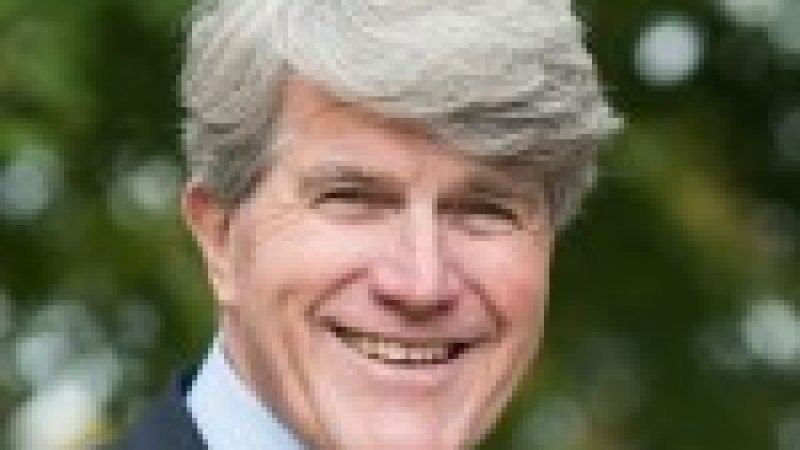Democratic candidate Matt Flynn says he’d use his power as governor to tackle mass incarceration within the state.
“I will empty the jails and press for much lower sentences,” Flynn said during a WisPolitics.com/Milwaukee Press Club luncheon in Milwaukee May 22. “Mass incarceration is one of my concerns, and I think that’s an issue that sets me apart.”
While Flynn said those who commit murder or rape deserve long sentences, those convicted of non-violent crimes like possession of marijuana, which he seeks to legalize, shouldn’t be behind bars.
Flynn said if his plan to fully legalize, regulate and tax marijuana doesn’t win approval, he’d use his pardon power as governor to free those convicted of possession.
>> WisPolitics is now on the State Affairs network. Get custom keyword notifications, bill tracking and all WisPolitics content. Get the app or access via desktop.
“Even if I can’t get it legalized, I’m going to put out a message to the judges of this state: ‘If you convict them of marijuana possession at 10 in the morning, I will pardon and free them at two in the afternoon,'” he said.
Flynn also said there are “cowboy judges” who hand out long sentences. To pressure judges to use more restraint in sentencing, he would require them to calculate the costs.
“So if he goes in front of the taxpayers and says, ‘I’m a tough cowboy,’ somebody can run against them, and say, ‘you’re a wasteful cowboy, and let’s just get this down a little bit,'” Flynn said.
And that’s just one of the ways Flynn, who served as state Dem Party chair from 1981-1985, said he differs from the rest of the crowded Dem field.
Flynn, a Vietnam War-era Navy veteran who turns 71 in October, is one of the oldest candidates in a relatively young field. He said he got involved in Democratic politics when the cast included people like Gaylord Nelson, William Proxmire, Les Aspin, Dave Obey and others. He said he worked closely with politicians like former U.S. Sen. Herb Kohl and former Gov. Pat Lucey, both of whom also served stints as chairmen of the state Dem Party.
“They left the battlefield and I haven’t,” Flynn said. “Of all the people I just named, many of them are gone, but I’m not gone and I’m going to revive that spirit.”
Flynn noted how the Democratic Party has changed over the last half century, saying that during the 1960s, the party was known for strong defense and prosperity, and then saw anti-war sentiment seep in during the ’70s and ’80s. Now, he said there’s a turn toward identity politics.
“I think there’s a strain of identity politics and victimology in our party, and I think that is something that has been bad for the party,” Flynn said. “And I’m a different kind of candidate, and I make that clear.”
With many of the top-tier candidates hailing from Dane County, Flynn, who lives in Milwaukee, said polling shows he’s strong in Milwaukee, Green Bay and rural areas, where he said he spends a lot of time.
“People like a no-nonsense candidate with a different kind of message than the Democratic Party’s had,” Flynn said.
While Flynn highlighted the ways he differs from others in the field, he said he doesn’t expect Dem-on-Dem attacks to take place during the primary, and said he wouldn’t launch attacks himself. He said he’d support any of the Dem candidates if they won the nomination.
“I’m here for one purpose,” Flynn said. “We’ve got to get Scott Walker out of there. If he reapportions until 2030, you’re not going to recognize this state.”
Flynn, a former partner with the Quarles & Brady law firm, has faced attacks over his defense of the Milwaukee Archdiocese from 1989-2004 during the priest sexual abuse scandal, with some activists calling for him to drop out of the race because of it.
At Tuesday’s luncheon, he faced questions over the issue from Sarah Pearson, state co-chair of Women’s March Wisconsin, and Peter Isely, a founding member of Survivors Network of those Abused by Priests.
Among other things, Isely questioned Flynn about the transfer of 24 priests accused of abuse while Flynn represented the archdiocese. Isely repeatedly referred to documents he said showed Flynn was involved in the transfers.
Flynn denied he was involved in the transfers and said he knew about them only when lawsuits were brought. He said because of reforms he helped put in place, no transfers have happened since.
While Flynn addresses the issue in his stump speeches and set up a webpage defending his representation of the archdiocese, he became testy during the luncheon after repeated questions. He suggested those pressing him about the issue are engaging in McCarthy-like tactics.
“The business of saying, ‘I have a letter here or there’s an opinion there’ — and by the way, I don’t see it — reminds me of saying there are 57 communists in the State Department in West Virginia, and there’s no documents,” Flynn said. “So right, let’s see whatever documents you’ve got.”
Speaking with reporters afterward, Isley dismissed the notion that the groups’ pursuit of the issue is akin to McCarthyism.
“What McCarthy didn’t have, of course, was all the evidence,” Isely said. “It’s an insult to say that. It’s an insult to victims, and it’s a personal insult … That’s why victims don’t come forward.”
Pressed by reporters about his tone toward Isely, Flynn said he’s aggressive and enjoys “the give and take.”
“Did I tell him to jump in a lake?” he quipped, referencing an earlier comment about the groups seeking to have him quit the race. “No, I didn’t. So I’m improving a little bit.”
*Watch WisconsinEye video: http://www.wiseye.org/Video-Archive/Event-Detail/evhdid/12397
*To see interviews with other candidates and for more news and information on the governor’s race, visit our 2018 Gubernatorial Election Guide: https://www.wispolitics.com/2018-governors-race/



